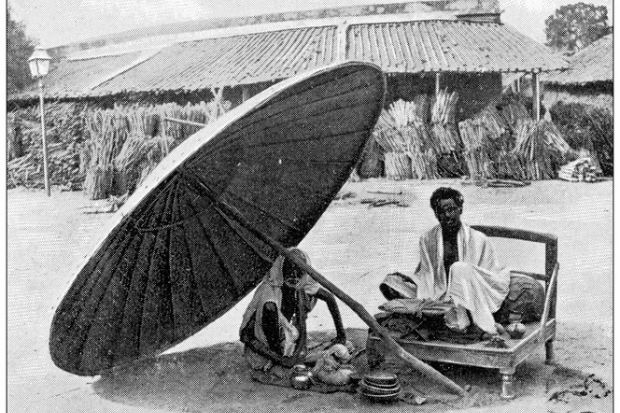At a time when most Indian universities claim to pursue equality, many “lower caste” Indian academics must still choose between their caste identity and their persona as a scholar, researchers say.
Mistreatment based on background and family status is still part and parcel of academic life in India, said Nandita Dhawan, an assistant professor at the School of Women’s Studies at Jadavpur University, in Kolkata, India, and co-author of a recent article on the issue.
“There’s a very fine balance between choosing the caste identity or being just an intellectual. Caste should not matter but it does – so one has to constantly keep weighing the options,” she said.
“The choice for academics to ideally leave their caste identity in favour of their intellectual identity might not be easy for those lower down the caste order. The lower castes have no choice but to reveal or assert their caste identity because of the tacit pattern of ‘academic untouchability’.”
Dr Dhawan’s recent paper in the journal Higher Education looks at how Indian academics treat their lower caste colleagues compared with those from wealthier, more privileged backgrounds.
While caste discrimination is well known in India and has been studied extensively in students, it is less studied – though equally harmful – at faculty level and in higher echelons of academia.
Even today, despite universities’ awareness of the issue, academics from lower castes continue to be on the receiving end of abuse and condescension from their colleagues, Dr Dhawan and her co-author, Dina Belluigi, a lecturer in social sciences at Queen’s University Belfast, told Times Higher Education.
“Higher education hasn’t actually removed caste…but made it increasingly more difficult for those coming from ‘lower’ castes. They’re having to almost pretend as though it’s not part of their identity,” said Dr Belluigi.
The researchers found that many upper caste academics who claimed to support “equity” still held casteist views.
While such scholars were privileged enough to believe themselves casteless, they doubted whether colleagues of humbler backgrounds had attained their positions through merit, having gotten into university via affirmative action under India’s so-called quota system.
“It’s very damning,” Dr Belluigi said. “Even people who began speaking benevolently about equity – and equity is patronising for academic colleagues – didn’t realise how they were categorising those of lower caste as ‘deficit’ in some ways.”
While a few marginalised academics have spoken out, triggering public abuse, many feel unable to do so, the researchers said.
“At times it becomes very difficult because individuals have to bear the burden,” said Dr Dhawan, citing the case of Jadavpur University history professor Maroona Murmu, who faced casteist slurs online after sharing concerns that the institution’s exam practices during Covid were placing student lives at risk.
Paradoxically, while India has “strong” anti-discrimination policies, it lags far behind on implementing them, said Dr Dhawan.
Pursuing “inclusion” alone has not fixed the problem in a country with a history of overt discrimination, noted Dr Belluigi.
“After a long period of inclusiveness, it hasn’t fundamentally altered higher education. Particularly at staff level, that has systemic implications for the country because education is about teaching but also research and knowledges of diverse groups,” she said.
Going forward, Indian institutions will need to rethink their approach, analysing data and taking a deeper look at shortcomings to address “implementation gaps”, the scholars believe.
Perhaps just as important, universities should make it a priority to consult marginalised academics, said Dr Dhawan.
“Universities need to draw from the experience and research of lower caste scholars who are raising the voices. [These] need to be gotten into the decision-making process.”
Researchers trying to make a difference on caste issues could take a lesson from women’s studies, which has brought gender discrimination in India under the spotlight in recent decades, she said.
“In women’s studies, what we’ve been doing for the past 30-plus years is to try to understand the complexity of the kind of discrimination happening – we were talking about social justice, gender and intersectional justice. You can’t just ‘add caste and stir’ – the methodology has to change.”
Register to continue
Why register?
- Registration is free and only takes a moment
- Once registered, you can read 3 articles a month
- Sign up for our newsletter
Subscribe
Or subscribe for unlimited access to:
- Unlimited access to news, views, insights & reviews
- Digital editions
- Digital access to THE’s university and college rankings analysis
Already registered or a current subscriber? Login










